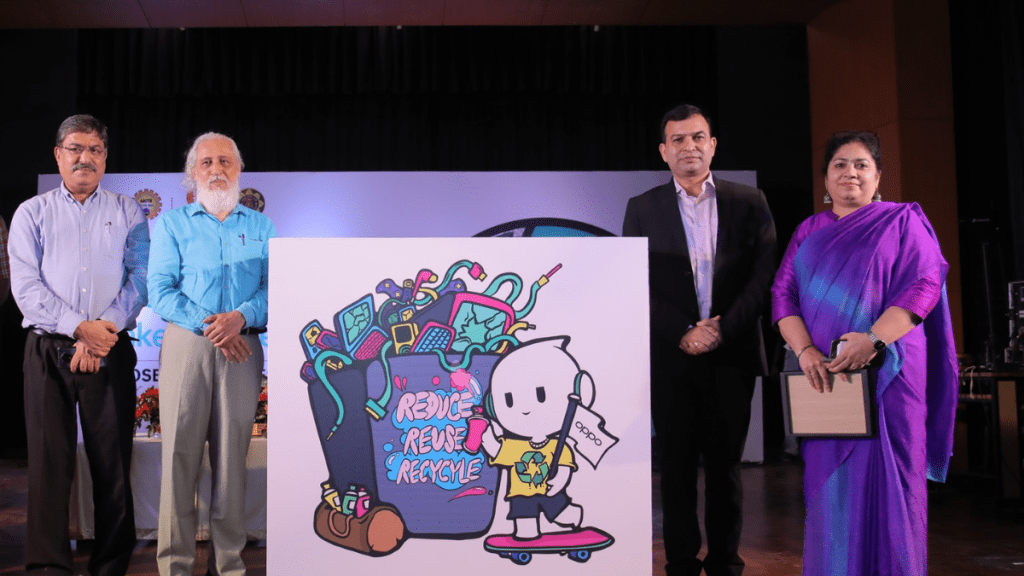The All India Council for Technical Education (AICTE) has collaborated with OPPO India to foster a green mindset amongst students and equip them with the skills required to excel in a sustainable economy. They are educating students about the complexities of electronic waste (e-waste) and promoting sustainable practices. We talked to Anil Sahasrabudhe (chairperson of the National Education Technology Forum) and Rakesh Bhardwaj (head of Public Affairs at OPPO India) who shared why green skills are important:
What are green skills?
Green skills are the knowledge, abilities, values, and attitudes that help people thrive in a sustainable society. They are important for everyone, but especially for children who can contribute to the ecological transition over a longer period of time.
What is OPPO India doing?
It has started the Generation Green campaign with a nationwide e-waste awareness drive, and is offering Green Skills internships. More than 9,000 students from over 1,400 institutions have applied for these internships, and 5,000 have been selected. These students are now engaged in hands-on sustainability activities. The initiative started at Ramjas College Delhi, and went to Amity University Jharkhand, and will now go to institutes pan-India. Students, staff members, and neighbouring institutions are being encouraged to collect and responsibly dispose of e-waste through companies authorised by the Central Pollution Control Board (CPCB).
How will students benefit?
Upon successful completion of the internship, students will be awarded certificates by the AICTE and credits will be added to their Academic Bank of Credits that is linked to the APAAR ID.
What’s the APAAR ID?
Short for the Automated Permanent Academic Account Registry, the APAAR ID was introduced by the NEP 2020 and it serves as a lifelong academic passport of a student, consolidating all academic achievements – degrees, scholarships, awards, and other credits – of a student in one place.
How to measure success?
OPPO India said the goal is to engage at least a million students by the end of 2024 and equip them with green skills.
Why OPPO India?
Tech analysts told FE that companies making smart devices such as phones, headphones, tablets, laptops, and watches indirectly produce a lot of e-waste, and it’s their responsibility to drive campaigns that aim to reduce e-waste. Although they can and must directly reduce e-waste by reducing the amount of electronics that are consumed in devices, and having a robust reuse, recycle, and repair ecosystem, such campaigns with educational institutions can theoretically go a long way in mitigating the problem of e-waste by readying a generation of green skills warriors.


